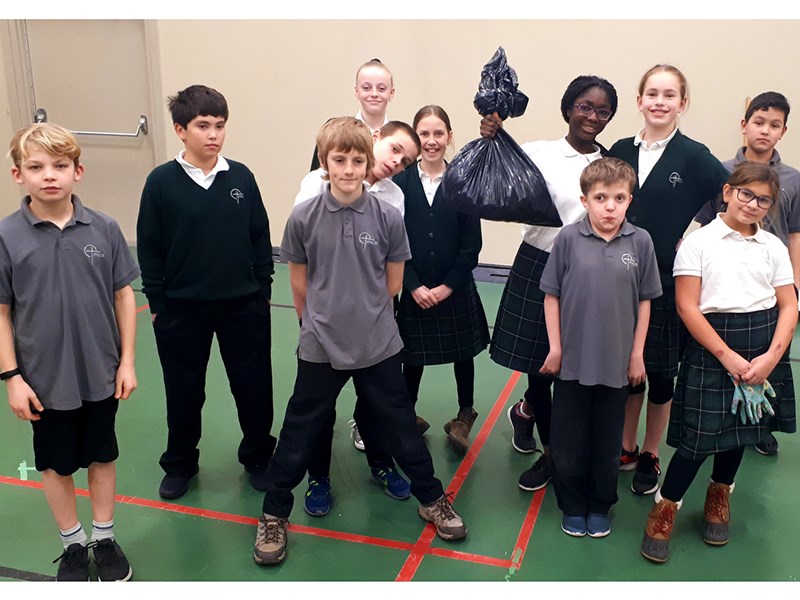How many of us are willing to go through a bag of garbage?
Well, that is exactly what a class of elementary school scholars did to discover what was in their trash. Operating from the perspective that waste is only waste once it’s wasted, they wanted to find out what could have had a better home than the landfill.
Some of us could benefit from this yucky exercise; a dumpster dive into our own community’s so-called waste would reveal that about 40 per cent of it is compostable and another 30 per cent is recyclable.
Powell River Christian School (PRCS) is a great example of how little garbage we actually produce when we sort materials out before disposal. Having already started with a worm bin composter gobbling up much of their food waste, students wanted to do even better. Their September waste audit revealed that one week of the school’s garbage weighed 23 kilograms but with further sorting it could have been as low as six kilograms.
They discovered that the biggest miss had been paper towels, which are actually perfectly suited for the compost. Being carbon rich, paper towels (bleached or unbleached) are a great balancer for a compost pile that is mostly made of food scraps.
Germs (also known as pathogens) are neutralized during the composting process. Temperatures reached by a healthy composter kill human and plant pathogens and viruses: this translates to about 55°C (131 °F) or greater for three consecutive days. Even backyard compost piles can achieve this when they have a balance of nitrogen (food scraps, coffee grinds, fresh grass clippings, manure) and carbon (paper towels, dried leaves, dried grass, wood shavings, woody materials, dried leaves), as well as good airflow (fluffing with a garden fork, or poking occasionally with a stick will do the trick).
By reducing paper towels and food waste in their garbage, PRCS was able to get its weekly garbage down to a mere 8 kilograms, 66 per cent less than in September. The grade 6/7 scholars are inspired to further reduce and have been tracking their efforts to motivate others to do the same.
To share their efforts, they have entered into the BC Green Games, something you can support through your votes by searching for Striving 4–0 Waste.
PRCS may even cancel its garbage collection services, saving $600 a year. The school is already transforming its food waste into nutrient-rich soil for its garden, for instance, and experimenting with growing plants from seeds, some of which have been found in their so-called trash can in the form of discarded fruit.
Spring is a great time to begin backyard composting, or get a worm bin started. Plans for these are easily found online and through LetsTalkTrash.ca. Food scraps, paper towels and yard trimmings can also be brought to the Town Centre Recycling Depot in Powell River for free disposal six days a week.
It’s time for us all to think outside the can and put our garbage on a permanent diet.
Let’s Talk Trash is qathet Regional District’s waste-reduction education program.



